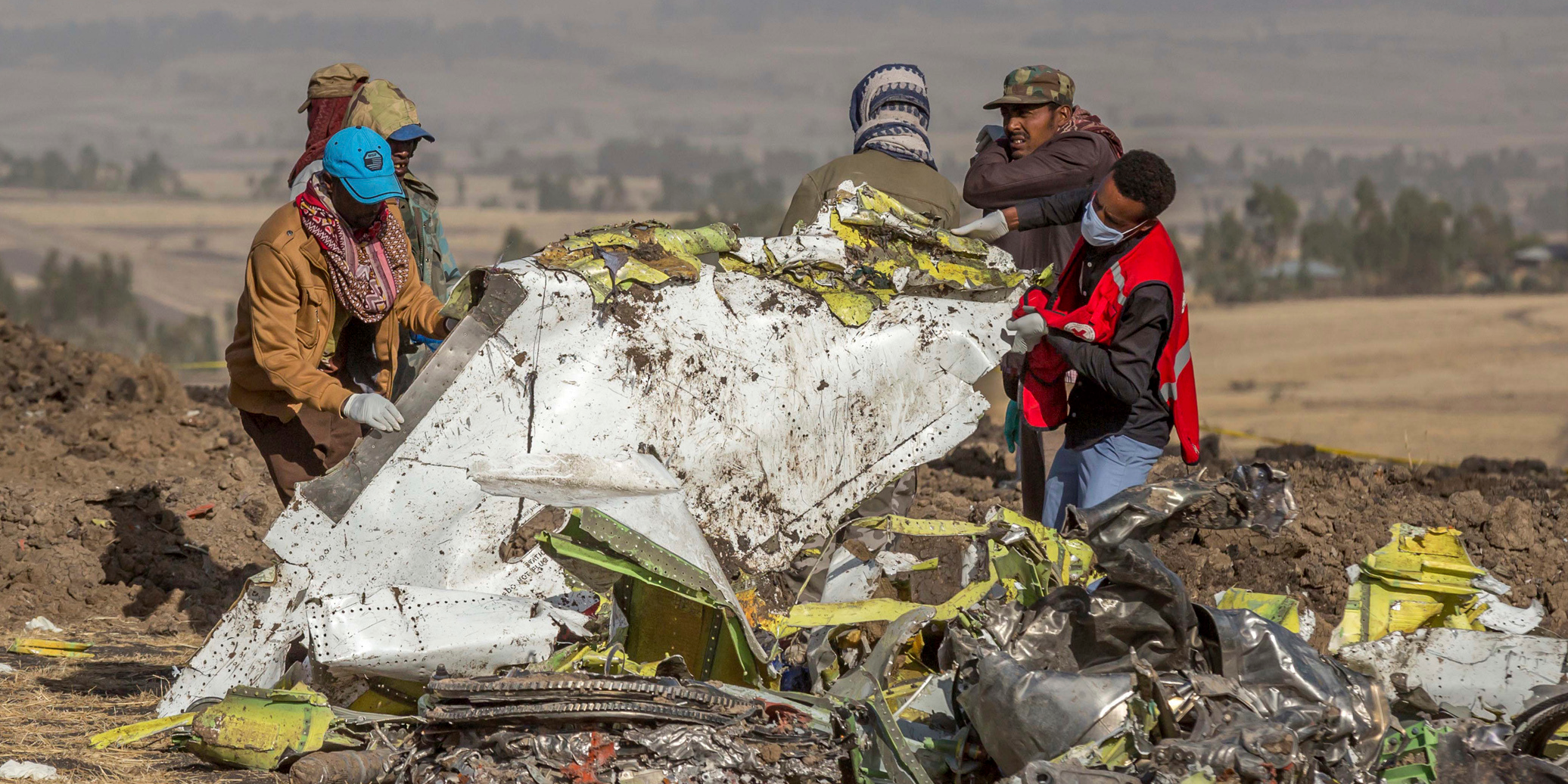- Boeing has said it’s lost at least $1 billion over its 737 Max aircraft.
- The company said this week in its first earnings report since the plane was grounded that it couldn’t predict how much the ongoing crisis would affect its profits for the rest of the year.
- Boeing has reported no new orders for the aircraft and has cut production since it was grounded after two fatal crashes but has vowed to make the plane “one of the safest airplanes ever to fly” when it is certified to fly again.
- Visit Business Insider’s homepage for more stories.
The crisis with Boeing’s 737 Max planes has already cost the company at least $1 billion this year – and the company has said it can’t predict how much worse the financial impacts of the scandal will be.
Boeing on Wednesday announced that the aftermath of two fatal plane crashes, which has seen its 737 Max planes grounded around the world and a dip in production of the planes, had already cost it at least $1 billion, according to a report from Reuters.
The $1 billion figure reflects an increase in what Boeing is paying for parts for the 737 Max, Reuters said. Parts cost more amid the production cuts as deals with suppliers are “priced according to the volume Boeing buys,” Reuters said.
Boeing also on Wednesday said that its core profits fell 21% in the first three months of 2019 compared with the same period in 2018 and that it was withdrawing its 2019 financial forecast over increased uncertainty with the 737 Max.
"Due to the uncertainty of the timing and conditions surrounding return to service of the 737 MAX fleet, new guidance will be issued at a future date," Boeing said.
Read more: Boeing can't deliver the 737 Max to customers, and now the planes are clogging up its storage lots
Wednesday's earnings were the first released by Boeing since the aircraft was grounded around the world in response to the fatal Ethiopian Airlines crash in March, which followed a fatal Lion Air crash in October. Nearly 350 people were killed in the two crashes.
According to Bloomberg, the plane was set to become Boeing's largest source of both revenue and profit in 2019.

But Boeing has reported no new orders for the aircraft since it was grounded, and it has cut production of the 737 Max to 42 aircraft a month from 52. Airlines have canceled flights into the summer as a result.
The preliminary reports into both crashes identified issues with the planes' MCAS automated anti-stall software, which Boeing is updating. The planes will remain grounded until the US Federal Aviation Administration approves the software fix.

But Boeing CEO Dennis Muilenburg defended the processes behind the aircraft on an earnings call Wednesday, Quartz reported, saying: "There is no technical slip or gap here."
Read more: Boeing's CEO should be removed as chairman of the company's board amid its 737 Max crisis, a major shareholder adviser says
He said that "both accidents were a series of events, and that is very common to all accidents that we've seen in history," and that these included "erroneous" sensor information from "multiple causes" that activated the MCAS software.
But he alluded to the idea of pilot error, saying both fatal crashes had "actions or actions not taken that contributed to the final outcome."
Muilenburg also on Wednesday said he expected a certification flight to take place with the FAA in the "near term," Reuters reported.

He said the 737 Max "will be one of the safest airplanes ever to fly" when it returns to the sky.
In a statement Wednesday, Muilenburg said the company was "focused on safety, returning the 737 MAX to service, and earning and re-earning the trust and confidence of customers, regulators, and the flying public."
In addition to slowed production, Boeing is also facing lawsuits from shareholders and from victims' families, reports of issues with its factory processes, and calls for it to appoint an independent board chairman.

